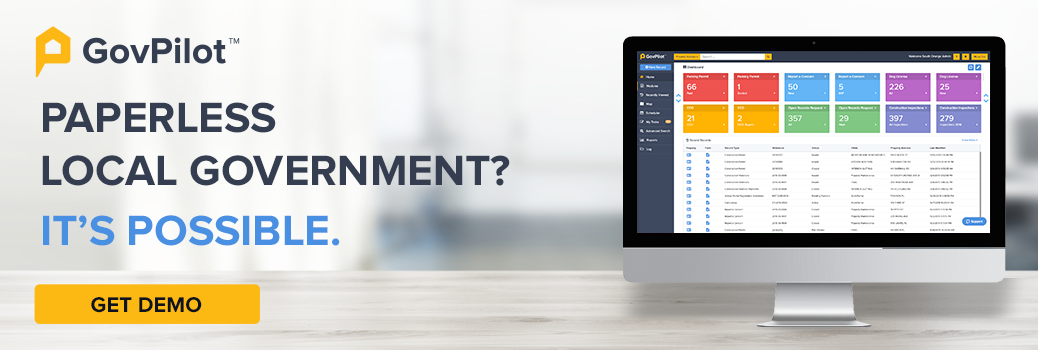Government employees who dedicate their personal time and extraordinary effort supporting the community are not often thanked or appreciated outwardly enough by other staff members or supervisors. Promoting a supportive work environment that recognizes employee efforts is a crucial step in employee retention, as unrecognized hard work can contribute to burnout and even resistance or resentment on behalf of the entire staff.
These matters can be avoided by implementing a clear communication plan intended to show appreciation, boost morale, and improve the work life of government employees. Fostering a culture of employee appreciation is not just a nicety but a strategic imperative for local officials.
When employees and personnel feel underappreciated, they face the effects of burnout, decreased motivation, and diminished job satisfaction. This can lead to a number of negative outcomes including higher turnover rates, reduced collaboration and productivity, and a negative impact on team dynamics. Work silos are a common effect of unrewarded effort that creates a non-streamlined way of life in the office, hindering the efficiency of operations in all departments. This article aims to address various aspects of government life and work culture for employees, as well as improving timelines, work, and overall success for the municipality by providing actionable strategies for improving employee appreciation.
What Is An Employee Appreciation Strategy?
An employee appreciation strategy involves intentional efforts to recognize and acknowledge the contributions of employees. The strategy can include verbal or written recognition, employee appreciation events, personalized gestures, and rewards programs.
A successful employee appreciation strategy aims to create a positive work culture, boost morale, and foster a sense of value among employees to increase job satisfaction and productivity. Employee appreciation strategies ensure that employees feel their work is valued and appreciated by their superiors, increasing employee retention and reducing turnover rates.
Learn everything about how to perfect a Government Communications Strategy.
Why Go Out Of The Way To Show Employee Appreciation?
The benefits of practicing employee appreciation go beyond improving employee retention to improve the overall employee experience and job satisfaction. Here are some more examples of the positive effects of employee appreciation:
-
Improve Morale, Make Them Feel Appreciated
When a supervisor or employer takes the time and thought to express appreciation to their employees, morale is significantly improved in the workplace because personnel feel appreciated and valued. A boost in morale can easily influence a boost in productivity and collaboration across departments.
Consider implementing a strong Interdepartmental Government Communication Strategy.
-
Commend Good Work and Inspire More
Many employees take pride in their practice and admire an employer that notices their meticulous work, especially when they go above and beyond the expectations of a specific assignment or project. One way to express appreciation toward employees is by commending good work and offering inspiration. Make sure to be specific when offering praise, explaining exactly which aspects they excelled in and why. Supervisors can inspire employees by sharing personal anecdotes about their work life and encouraging conversation about new ideas.
Learn about our Government Human Resources Software.
-
Show They Are Working For Something Bigger
The repetition of a daily work routine can contribute to feelings of monotony and dissatisfaction among employees. These feelings can be mitigated by simply reminding and showing employees that they are working for something bigger. Seeing the same forms and screens throughout the week can understandably feel dull to some employees, so supervisors and employers should take the opportunity to illustrate, present, or showcase the larger collective goal of all employees: improving the municipality and constituent quality of life.
-
Avoid Resentment From Workers
When work goes unrecognized, the structured power dynamics within the workplace can often feel out of balance, leading to a sense of resentment from employees. Employee appreciation strategies help to avoid resentment from workers by offering praise and recognition for tasks that may otherwise go unnoticed, reminding employees that they are valued and their work is respected.
Key Ways To Make Employees Feel Appreciated
There are numerous approaches to implementing an employee appreciation strategy but the main objective remains the same, to commend employees and all that they do.
-
Praise Good Work
Offer praise for quality work to make employees feel appreciated and encourage employee retention. Appreciating good work from an employee can include verbal reassurance, written praise, or praise in the form of a reward for employees. Acknowledge quality work from employees to remind them of their vital role, boost morale, and strengthen the employer-employee relationship.
-
Say ‘Thank You’
Create an appreciative environment for employees by making a point to say “thank you”, especially when an employee goes above and beyond to complete a task or mend an error. Local officials can make this appreciative practice a norm in the office when leading by example. Regularly offering gratitude to employees can look like a daily morning brief to review highlights and offer feedback.
-
Touch Base Often
A crucial aspect of practicing government employee appreciation is ensuring accessible means of communication to maintain a dialogue between employee and employer. Supervisors should check in with employees regularly to answer questions, provide direction, and commend employees when appropriate. Employee appreciation includes touching base often to gauge how employees are managing their workload and staying up to date on performance reviews.
-
Provide Incentives and Benefits
Fostering a culture of employee appreciation through incentives and benefits enhances morale and cultivates loyalty among the workforce. Supervisors can recognize and reward employee contributions with holiday parties, organized lunches, award dinners, and performance bonuses. Even consider a Hybrid Government Work Culture to show flexibility for employees.
Learn How to Use Benefits to Attract Government Workers here.
-
Allow For Mistakes Without Harsh Consequences
In order to foster a culture of innovation and learning, employees must be allowed to make mistakes without facing harsh consequences. Providing grace in this fashion encourages employees to take calculated risks, leading to creative problem-solving and continuous improvement. When an employee’s sole focus is avoiding mistakes, their performance is often hindered because they are tense, fearful, and experiencing significant stress.
Encourage an open dialogue with employees by eliminating harsh consequences and initiating honest conversations about workload and job satisfaction. When employees feel comfortable enough to express creativity in the workplace, they are more likely to reach the full potential of their intellectual abilities and perform efficiently.
-
Provide Career Growth Opportunities
Supervisors and local officials should invest in employees’ career growth as a strategic imperative for their organizations to thrive in today’s dynamic work landscape. By offering opportunities for skill development and advancement, employees can flourish in their careers with the support of their employer and companies can significantly increase employee retention.
Learn about Upward Mobility Planning At The Local Level.
-
Offer Exceptional Digital Infrastructure
Provide employees with updated technology and quality digital infrastructure to make their lives easier and increase overall productivity. Cloud-based government management software like GovPilot streamlines operations, saving time and money while reducing unnecessary manual labor and consequent human errors.
Learn How Local Governments Can & Should Use the Cloud here.
Benefits Of Showing Appreciation to Civil Servants
Offering gratitude to civil servants is a crucial aspect of employee retention and job satisfaction. The benefits of making employees feel appreciated are irrefutable and extend to the entire workforce.
-
Better Work Production
Regularly showing appreciation for employees fosters a positive workplace culture that motivates individuals to go above and beyond in their roles. When employees feel valued and recognized, they are more likely to be engaged and committed to their tasks.
-
Better Morale In The Office
Higher morale contributes to increased job satisfaction, reducing burnout and unhealthy stress. When morale is high, employees are more inclined to consider the effects of their absence and are able to collaborate and work cohesively.
-
Improved Mental Health Outcomes
When employees don’t receive recognition for their work or an acknowledgement from their superior, they may begin to feel ignored and insignificant, leading to negative mental health effects. Valued government workers generally have improved mental health outcomes and consequently improved production due to a sense of appreciation and belonging.
Consider The Role Local Governments Play in Promoting Public Health here.
-
Streamlined Timelines and Healthy Communications
Showing appreciation to civil servants contributes to more effective workflows and active communication within the workplace. Employees who receive gratitude and recognition from their superiors are more motivated to fulfill their roles to the best of their abilities, whereas unappreciated employees quickly experience burnout and a consequent reduction in work quality.
Read about Public Health Initiative Strategy here.
Promote A Supportive Work Environment Now
Promoting a supportive work environment that recognizes employee efforts is a crucial aspect of streamlined productions and successful collaboration in the office. A lack of employee appreciation contributes to burnout and resentment on behalf of the entire staff. Fostering a culture of employee appreciation is a strategic imperative for local officials to increase employee retention, improve the work life of personnel, and contribute to a harmonious team dynamic. Local government officials need to build a culture of positivity and appreciation where employees enjoy the office and want to work harder. Book a consultation with GovPilot today.
FAQ
Why is it vital that government workers feel appreciated?
- It is vital that civil servants feel appreciated in their roles to keep job satisfaction and motivation high in the office. When employee appreciation is not a priority, collaboration is decreased, effective communication declines, and burnout will negatively affect employees.
What is an employee appreciation strategy?
- An employee appreciation strategy involves intentional efforts to recognize and acknowledge the contributions of employees. The strategy can include verbal or written recognition, employee appreciation events, personalized gestures, and rewards programs. A successful employee appreciation strategy aims to create a positive work culture, boost morale, and foster a sense of value among employees to increase job satisfaction and productivity. Employee appreciation strategies ensure that employees feel their work is valued and appreciated by their superiors, increasing employee retention and reducing turnover rates.
Read on:
- Best Public Sector Software 2023: Ways Governments Use Technology to Save Time & Money
- Government Continuity Strategy 2023: Procedures During a Crisis
- AI in Government in 2023 and Beyond: Bringing Artificial Intelligence to Your Municipality
- What is Azure for Government? Everything to Know
- What is Municipal Software? Understanding Government Software for Municipalities & Counties
- 7 Government Cybersecurity Best Practices 2023: Keep Data Secure & Prevent Ransomware Attacks
- 13 Benefits of Digital Transformation for Local Government 2023






